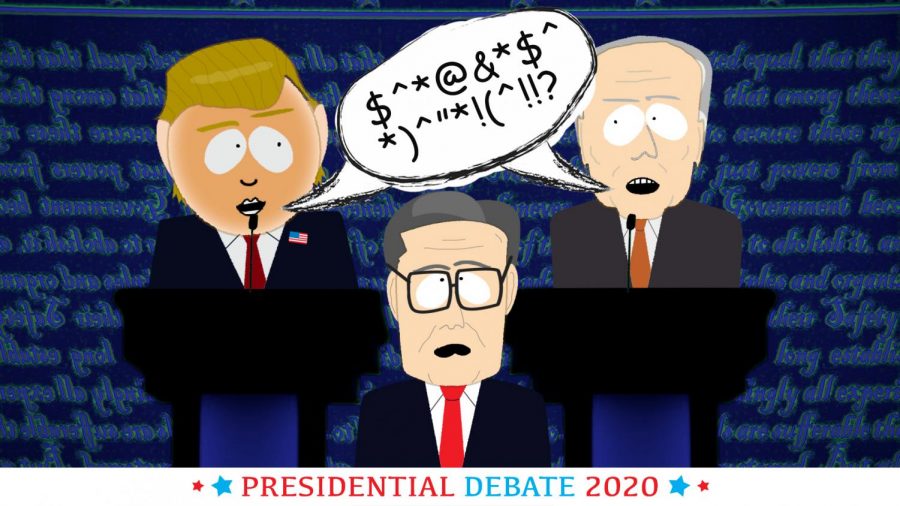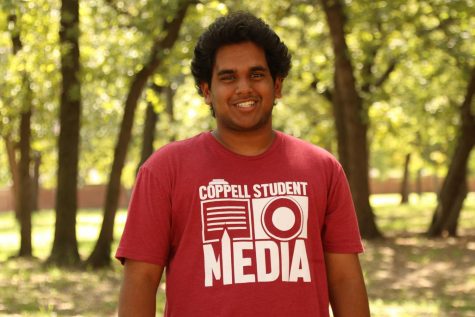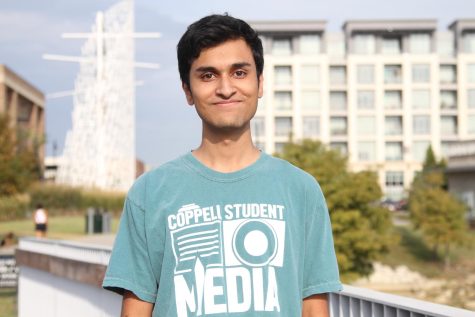First 2020 presidential debate marred by controversy, unprofessionalism
The first 2020 presidential debate on Tuesday between President Donald Trump and former Vice President Joe Biden in Cleveland was marred by frequent interruptions and yelling. On Wednesday, the Commision of Presidential Debates made an announcement proposing changes to the format of future debates, such as allowing the moderator to cut off a candidate’s microphone if they are not called on to answer a question.
October 2, 2020
During the last couple months, President Donald Trump and former Vice President Joe Biden have sparred over a multitude of issues, including COVID-19, economic constraints, healthcare, the recent nomination of Judge Amy Coney Barrett to succeed the late Ruth Bader Ginsburg and Black Lives Matter.
Controversy over these issues culminated in one 90-minute debate on Tuesday that saw a plethora of personal attacks and verbal aggression from both candidates.
The first presidential debate of the 2020 election cycle can be described in one word: chaos.
“It felt like the debate was out of control,” Coppell High School debate director Dr. Jason Sykes said.
The debate itself saw the personality of both candidates very early on, but left viewers lacking substantial policy discussion from either candidate.
“Debate should be about resolving problems and using communication to bring people together, and I don’t think that was accomplished [Tuesday] night,” Dr. Sykes said. “It was a lost opportunity to communicate with the American electorate and it set a poor example of Americans for the rest of the world. Both candidates really tried to appeal to their base and there could have been a more effective way to communicate about their plans for the office.”
After a thorough review of the debate transcript, it was determined that there was one interruption per minute during the 90-minute debate. Interruptions are narrowly defined as moments when moderator Chris Wallace called on one candidate and the other cut in, as well as instances in which a candidate interrupted Wallace, with interplay going unaccounted for.
“The behavior from both candidates, at certain times, was quite childish and not appropriate for the setting that they were in,” CHS sophomore debater Shrayes Gunna said. “There were certain moments that were infuriating especially because I wasn’t able to understand certain people and it was abrasive.”
The behavior throughout the debate raised questions about the debate format itself, causing the Commision on Presidential Debates to consider making changes to mitigate disruptions and personal attacks in future debates. Proposed rule changes include limiting a candidate’s speaking time and giving the moderator the ability to cut off the microphone of the candidate who was not chosen to answer a question.
“Any future moderator needs to impose some penalty every time an interruption happens,” CHS senior debater Shabbir Bohir said. “For example, if President Trump were to continuously interrupt Vice President Biden, then after a certain point, every single interruption that happens should add time to the amount of time that Biden would be allowed to speak on his policies.”
The next presidential debate will take place on Oct. 15 in Miami. However, this could be in jeopardy with Trump testing positive for COVID-19.
“I don’t think that anyone won this debate,” Sykes said. “The losers were the American people and democracy at large. It was an embarrassment to Americans on an international stage and both of the candidates have a lot of work to do in these last few weeks [before Election Day].”
Follow Meer(@meer_mahfuz) and @CHSCampusNews on Twitter.











